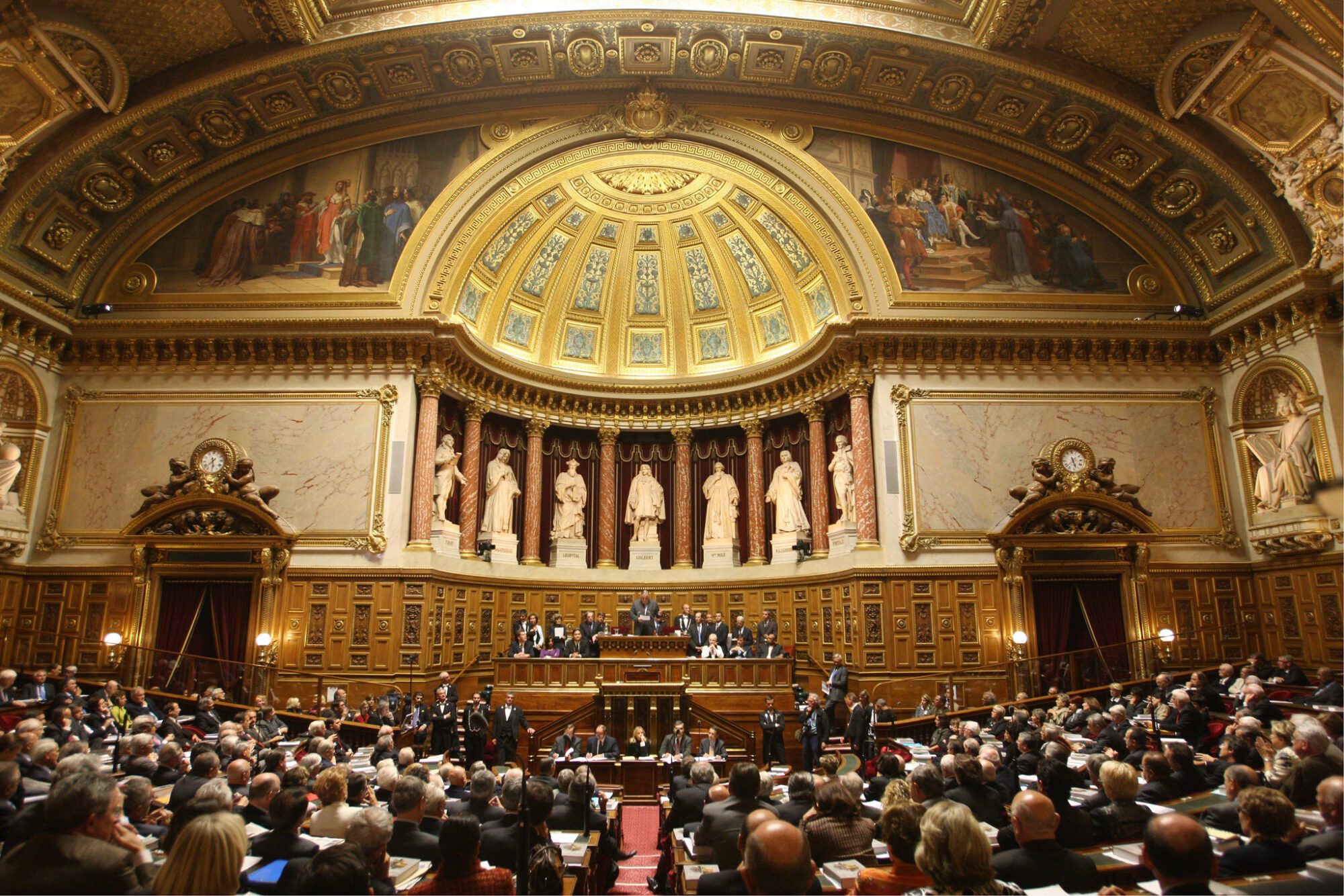
On Wednesday, February 1st, the French Senate examined a bill already approved by the National Assembly to enshrine the right to abortion in the Constitution. A similar version of the text was rejected in November. This time, the senators chose to propose an alternative text, which validates a ‘freedom’ to abort but not a ‘right to abortion.’
For several weeks, strong pressure had been exerted by the media to push the initially hostile senators to follow the deputies and vote in favour of including a ‘right to abortion’ in the French constitution. Press statements and demonstrations in front of the Senate were intended to influence senators to vote in favour of the reform, even though many of them were opposed to it on various grounds. Some senators were reluctant to enshrine abortion in the constitution out of personal conviction—even though no politician in France today would venture to say that he was strongly opposed to abortion. Others argued that abortion does not belong in the constitution, which is not intended to become a catalogue of rights and claims. The head of the LR senators, Bruno Retailleau, made a point of asserting his dissension on Twitter, reminding readers that they should not hesitate to “think differently from the Left” on these issues.
The senators finally chose a middle way, at the initiative of Senator Philippe Bas of the Les Républicains party. A former collaborator of Simone Veil, he introduced a new wording, judging that the bill passed in the National Assembly at the initiative of the deputy of La France Insoumise Mathilde Panot was “poorly drafted.” On his suggestion, the text finally adopted at first reading by the senators, which must now return to the National Assembly, aims to complete Article 34 of the Constitution in the following terms: “The law determines the conditions in which the freedom of a woman to terminate her pregnancy is exercised.” The term ‘right’ defended by the Left has been abandoned in favour of ‘freedom,’ a change of term that is important both symbolically and practically.
Opponents of the constitutionalisation of abortion criticise the fact that, in spite of everything, the principle of adding the use of abortion to the constitution was eventually accepted by the senators. Pro-life MP Christine Boutin went so far as to describe the senators’ final renunciation as “pathetic.”
#IVG #Constitution
— christine Boutinن (@christineboutin) February 1, 2023
Le Senat vote pour l’inscription de la « liberté » d’avorter dans la Constitution. La liberté d’avorter n’est pas menacée en France (223000/an ).
Cette manipulation du Sénat ressemble à une minable et scandaleuse posture de Ponce-Pilate . Elle ne résout rien
The compromise wording proposed by Philippe Bas has the merit of refusing to set in stone any ‘right’ to abortion. The term ‘freedom’ also has the advantage of calling attention to another fundamental freedom that must be preserved—the freedom of conscience of practitioners to carry out an abortion or not.
An article by legal experts published in Le Figaro shortly before the vote pointed out that one of the major risks of enshrining the right to abortion in the constitution would be to render conscientious objection and freedom of expression on abortion null and void. These rights have already been severely restricted since the vote in 2017 on a law setting up a “crime of obstruction.” Twice already, in 2018 and 2020, ecologist and socialist deputies and senators, the very ones behind the project to constitutionalise abortion, have undertaken to remove the conscience clause. After the vote in the Senate, the Rassemblement National deputy Hervé de Lépinau stressed the importance of this fight, which remains relevant today:
L’inscription de l’#IVG dans la Constitution emportera disparition de la clause de conscience des médecins. Avec pour conséquence une raréfaction des gynécologues-obstétriciens pour le plus grand préjudice des femmes. L’enfer est toujours pavé de bonnes intentions… #Senat https://t.co/Buz5F52gaW
— Hervé de Lépinau ن (@HdeLepinau) February 2, 2023
The text adopted by the senators must now be examined by the National Assembly. For the amendment of the constitution to be effective, the two chambers must agree on an identical text. It is not certain that the left-wing deputies will approve the new “minimalist” version proposed by the senators. A final step must then be taken to complete the process—the organisation of a referendum on the final version retained.
